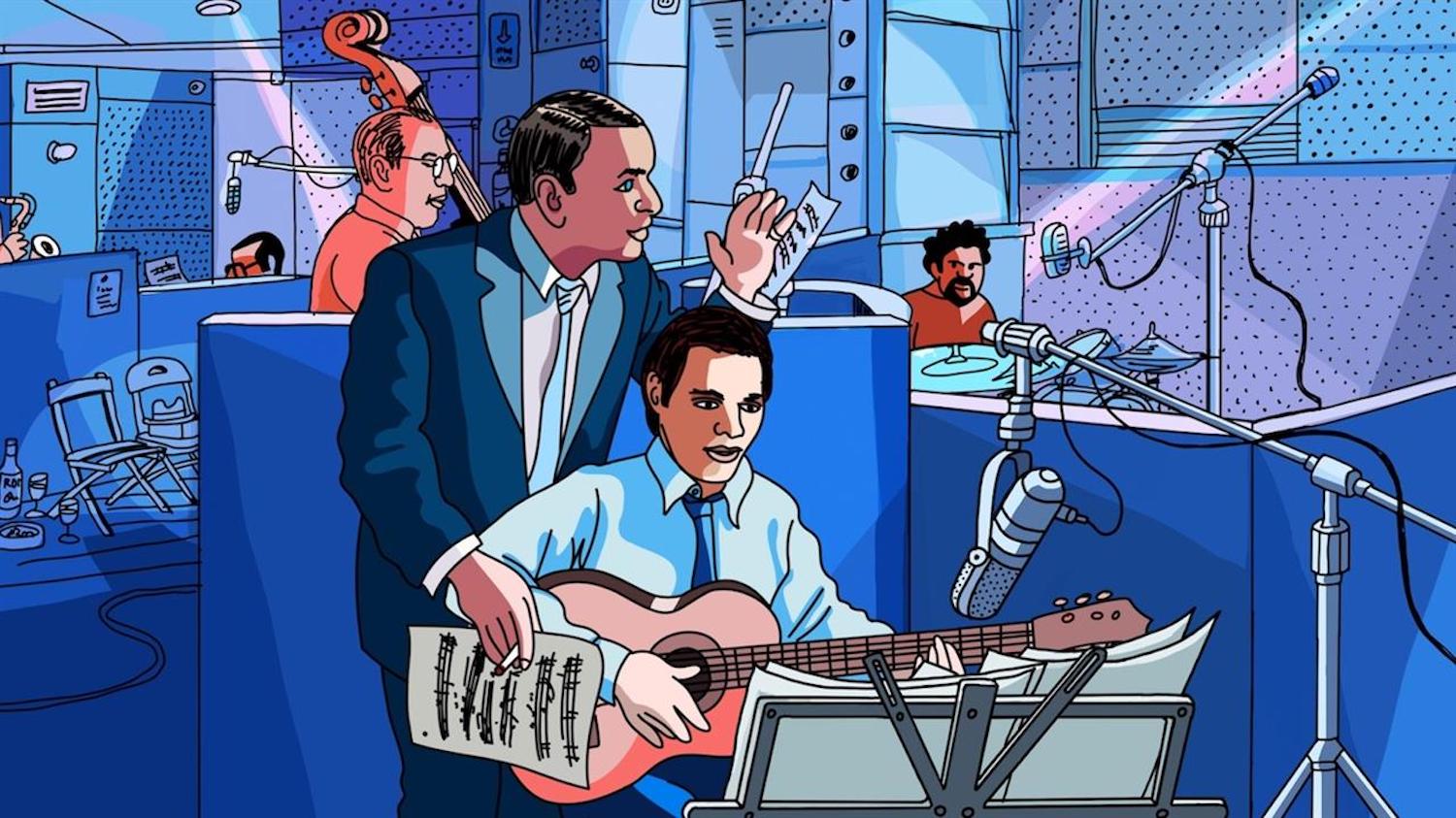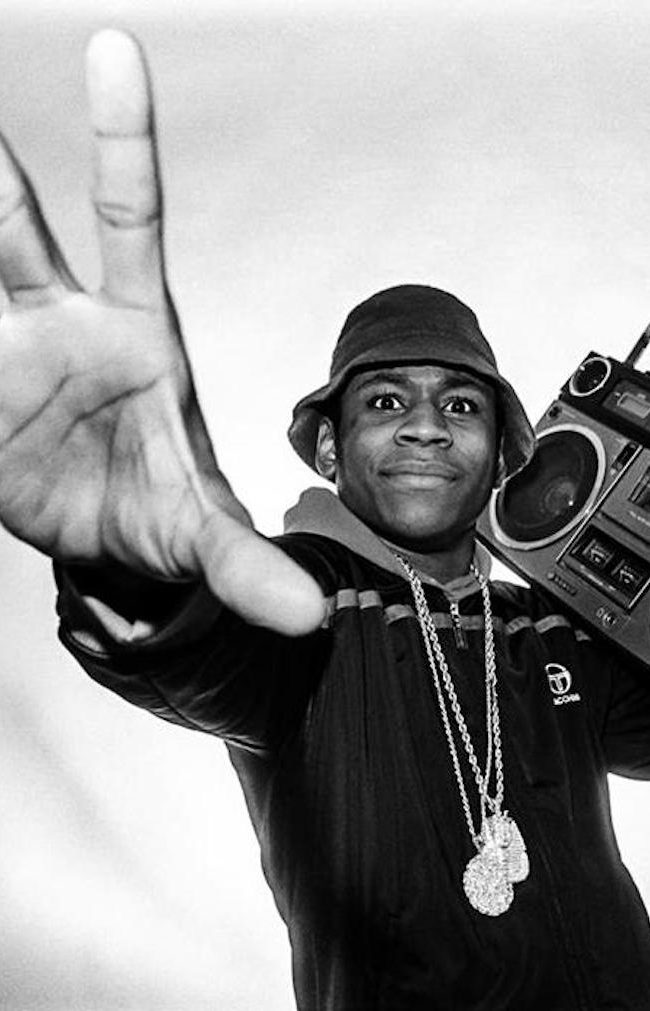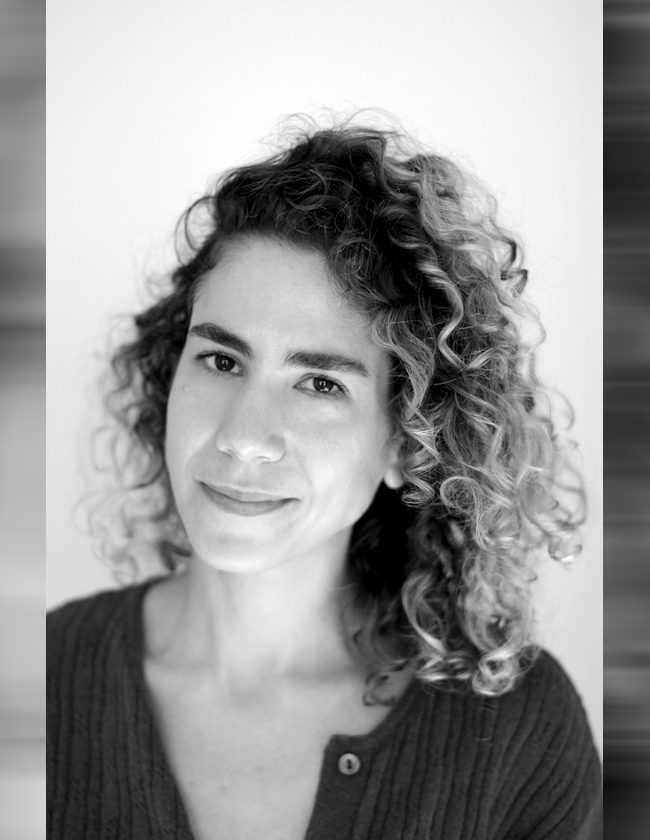THEY SHOT THE PIANO PLAYER

(DOC NYC, America’s largest documentary film festival, runs November 8-16 in New York City. HtN has boots on the ground and will be bringing you tons of coverage like Chris Reed’s movie review of They Shot the Piano Player. Seen it? Join the conversation with HtN on our Letterboxd Page.)
We live in a magical age of docufictional hybridity, the line between the real and the dramatized (or even invented) blurred beyond recognition. This may disturb the purist, but the realm of art is the place for experimentation, rules be damned. As long as one is transparent about tactics, then all that matters is the net effect of methodology. Let viewers decide how they feel about the result.
In They Shot the Piano Player, directors Javier Mariscal and Fernando Trueba (Chico & Rita) play with form, a most appropriate thing to do in a movie centered on a jazz pianist. Improvisation is built into the DNA of the music, so why not create something fresh that defies definition? And that they do, using animation, no less.
Actor Jeff Goldblum (Jurassic World Dominion) voices Jeff Harris, a completely fabricated New York-based journalist who becomes obsessed with discovering what happened to real-life Brazilian pianist Francisco Tenório Júnior (known simply as “Tenório” to friends and family), who disappeared while touring in Argentina. Some of the people with whom he interacts are voiced by actors, while others are the voices of actual people interviewed by the film’s writer and co-director, Trueba. It’s an invigorating presentation of heightened reality that mostly fascinates, throughout.
Tenório’s story is tragic. A supremely talented Brazilian musician who came of age when bossa nova was at its peak popularity in the 1960s, he would spend that decade and half of the next establishing himself as the man to go to when you wanted the best that free-spirited precision could offer. A gentle, cultured soul, he was, according to the interview subjects in the film, beloved of many. This would include the wife he was cheating on at the time of his death.
On a fateful day in 1976, he left the hotel in which he and his mistress were staying in Buenos Aires, late at night, to grab some cigarettes and sandwiches from a corner store. He would never return and no trace of him would ever resurface. It’s a mystery.
To understand the how and the why of the crime, we need context, and Mariscal and Trueba provide just that, courtesy of more interviews. We learn about South America’s “Operation Condor,” a cooperative conspiracy agreed to by the right-wing governments—many of them in power through military coups—that proliferated across the continent throughout the ‘60s and ‘70s. It was a coordinated program of repression where all would agree to take care of ostensibly radical elements in their countries, sometimes arresting dissidents who had fled their home nations at the behest of fellow dictators.
But why Tenório? The randomness is the point. He had longish hair and was out at night, and maybe looked funny to the prowling goons. That’s the suggestion, anyway. What a chilling way to vanish. Just because…
On a happier note, beyond this vital history lesson, we spend quite a lot of time discovering the beauty of Brazilian jazz (and hearing from its aging luminaries), exploring the musical connection to French New Wave cinema, and much more. The sum total is a moving experience. Is it all true? Perhaps not literally as presented here, but in the larger points, yes. They may have shot the piano player, but thanks to this film, they could not kill the memory of him.
– Christopher Llewellyn Reed (@ChrisReedFilm)
DOC NYC; Javier Mariscal, Fernando Trueba; They Shot the Piano Player documentary movie review











